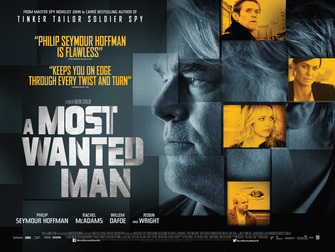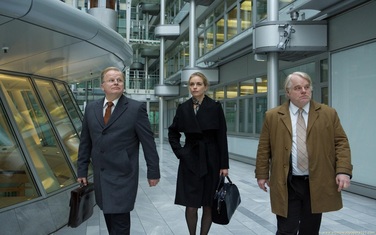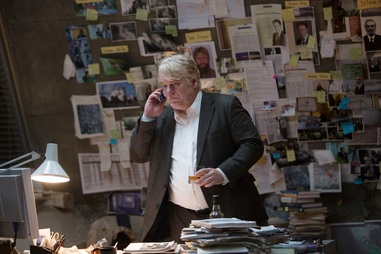
Perhaps without knowing it, Philip Seymour Hoffman left us on a poignant note. He did so in the form of Gunther Bachmann, the endearingly haggard protagonist of A Most Wanted Man.
In reality, there are many people responsible for the quality of this film, but the big three in question are Hoffman himself, Anton Corbijn in the director’s chair and the author of its source material, John le Carré. The film is instantly recognisable as the latter man’s work and it is his typically charged narrative style, in tandem with Hoffman’s performance, that make A Most Wanted Man such a vital film.

For a man who started off in the relatively early days of the Cold War and spent his best-known novels picking apart paranoid balance-of-power psychology, silver-haired Le Carré retains a remarkable ability to keep on top of the political zeitgeist and offer scathing commentary on the behaviour of governments, security services and violent undesirables in world affairs. Everything he’s written has been lauded for its punctual and slightly depressing relevance, and A Most Wanted Man is no exception.

We won’t go ahead and spoil the rest of it but, suffice to say, things don’t really get much more complex from there. After this tense set-up seemingly designed for the perfect commercial book blurb and with endless possibilities for layers of conspiracy and explanation, the narrative instead slows to a crawl and focuses on the characters as they address the situation as blindly as any audience member. There are no great revelations and certain intriguing elements are never actually explained, perhaps because the author didn’t deem them relevant. Instead we get a brief snapshot of a plausible scenario, designed to ring out long after the credits have rolled and remind us all what a mess the world has got itself into and who, arguably, is most responsible. Whether you enjoy it or not, it’ll put you in a nasty mood for a few hours.

 RSS Feed
RSS Feed
